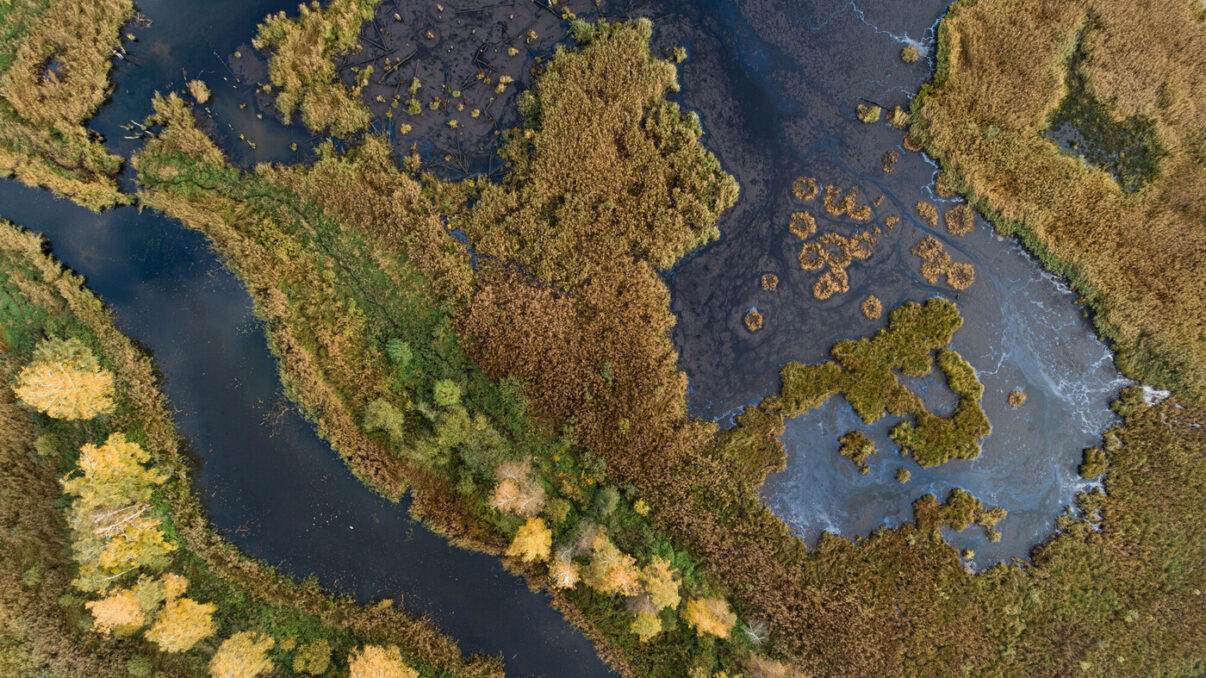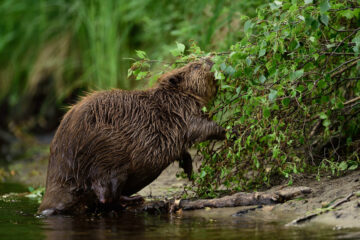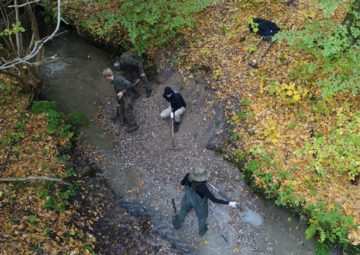How can rewilding enhance nature and the benefits it provides, as well as generate stakeholder support? By answering these questions, a new study in the Oder Delta could lead to the scaling up of rewilding in Germany.

Scaling up German rewilding
Straddling the German-Polish border on a key ecological crossroads, the Oder Delta is one of Central Europe’s wildest regions. Ongoing rewilding actions have seen wildlife begin to thrive in more natural densities here, with unmanaged natural processes reshaping the landscape. With nature-based tourism also on the rise, growing numbers of people are visiting the area to reconnect with nature and enjoy a chance to spot the so-called “Big Seven” – the Atlantic sturgeon, grey seal, beaver, white-tailed eagle, elk, wolf and the European bison.
This exciting landscape is now the subject of a groundbreaking three-year study – the first of its kind carried out in Germany – which will examine rewilding and the benefits it provides to both people and nature. Entitled “REWILD_DE – conservation of biodiversity and evaluation of ecosystem services through rewilding – learning from the Oder Delta”, the research initiative could eventually lead to rewilding being scaled up across the country, with the Oder Delta acting as a model.


A model approach
Funded by the German Federal Ministry of Education and Research (BMBF), the new initiative is coordinated by the Helmholtz Centre for Environmental Research (UFZ) and involves three partners: the German Centre for Integrative Biodiversity Research (iDiv) / Martin Luther University Halle-Wittenberg (MLU), the Eberswalde University for Sustainable Development (HNEE), and Rewilding Oder Delta (ROD), which is carrying out rewilding efforts in the delta.
Through their evaluation of rewilding in the Oder Delta, the research team will aim to answer a number of key questions. How can rewilding protect and enhance wild nature through activities such as river restoration, human-wildlife coexistence, and nature-based solutions such as natural grazing? What socio-economic benefits does rewilding provide? And how can rewilding strengthen regional economic potential? Answers to these questions will help to determine the scale of the role that rewilding could play in German nature conservation and helping to reverse biodiversity decline.
The people perspective
The researchers will also look at how rewilding is perceived and generates support from stakeholders in and around the delta. The Rewilding Oder Delta team will oversee communications with stakeholders and local residents – this will take place through workshops, interviews, and other forms of public outreach.
A stakeholder advisory board will be established, involving regional representatives, with a number of conferences held during the course of the initiative. The local population will be included in a “rewilding dialogue” including activities to address regional nature with art and exploration. This will help to gauge public opinion about rewilding, as well as promote understanding and acceptance of rewilding as a means of restoring nature and enhancing the wide range of benefits it provides to people.
Rewilding Europe itself is working hard to scale up rewilding. When applied at scale across Europe, rewilding can be one of the most significant and cost-effective means of delivering benefits to nature and people.
